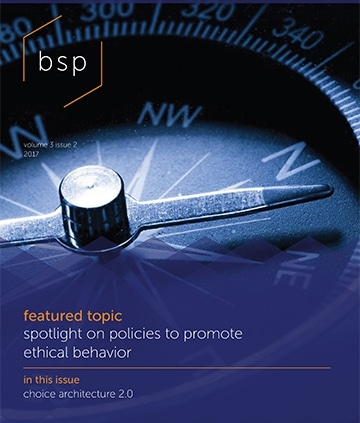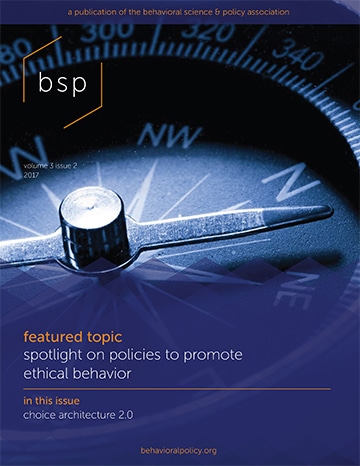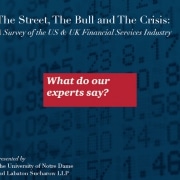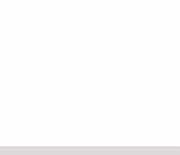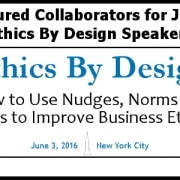Regulating for Ethical Culture in Behavioral Science & Policy
Ethical Systems partnered with The Behavioral Science and Policy Association (BSPA) to put on our 2016 conference “Ethics By Design.” One byproduct of the event- in addition to knowledge transfer and widespread press coverage- was the extension of our conference theme in an issue of BSPA’s interdisciplinary journal Behavioral Science & Policy (published twice yearly with the Brookings Institution) with a focus on applying behavioral science strategies and strengthening ethical culture.
After cultivation and editing, this issue has just been released featuring a “spotlight on ethics” with three review articles on how behavioral insights can guide interventions meant to promote ethical behavior. The three pieces include: “Treating ethics as a design problem,” by ES collab Nicholas Epley alongside David Tannenbaum, “Using behavioral ethics to curb corruption,” by friend of ES Yuval Feldman and the essay we summarize below, “Regulating for ethical culture,” by ES collab Linda Trevino, co-founder Jonathan Haidt and Executive Director Azish Filabi.
In “Regulating for ethical culture,” Trevino, Haidt and Filabi review the organizational behavior literature on ethical culture, define the components of ethical culture in organizations and summarize research into how to assess and strengthen it. They assert that culture assessment must be an integral part of regulatory efforts to strengthen ethical culture.
By tracking the contemporary history of regulatory efforts to define, regulate and measure culture- and spotlighting the work that companies may have to undertake to get a true picture of their organizational climate- the authors provide a blueprint from which to motivate ongoing assessment around an important lever in a company’s success.
From the piece (stringing together multiple quotes):
Assessing and regulating ethical culture in organizations is important for preventing fraud and costly cases of misconduct. In order to know where to begin, however, leaders and policymakers need to know how E&C orientation, leadership, climate, fairness, and trust feed into actionable assessments of ethical culture.
…However, many of the ethical and unethical behaviors found in organizations simply are not addressed by law and regulation (such as certain conflicts of interest) or have not yet been addressed (such as whether new information technology is being used ethically). Therefore, decisions about what is ethical or unethical reside in a gray area that is open to discussion and social consensus within organizations and society as a whole.
…Regulators and corporate leaders also need to understand that ethical culture is not an objective truth. Rather, it comprises the messages that employees perceive they are getting and that they are acting on every day, not necessarily the messages that management intends to convey. An organization’s efforts to study and improve its culture must therefore include direct questions asking its employees for their perceptions of the multiple aspects of ethical culture.
…A full understanding of ethical culture, however, would also require qualitative approaches, interviews and focus groups, which can provide a richer sense of what it means to employees to live and work within a particular culture. If regulators, policymakers, and companies are willing to collaborate with academics to develop and validate a suite of methods for assessing ethical culture, we can together achieve the goals of the original FSGO and the vision laid out more recently by [NY Fed Chairman] William Dudley: a business culture in which “how we do things around here” means measuring ethical culture and then trying to improve it.

